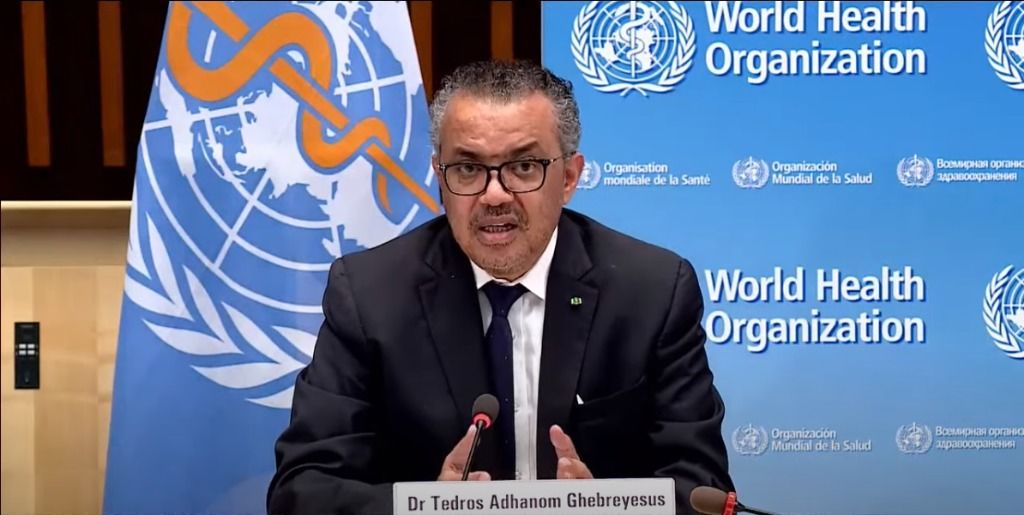Xinhua News Agency, Beijing, June 9th. WHO Director-General Tedros Adhanom Ghebreyesus said on the 8th that 29 non-monkeypox-endemic countries have reported monkeypox cases, with a total of more than 1,000 cases, and monkeypox virus has been reported in non-endemic countries. Possibility to “take root”, though WHO does not recommend mass vaccination against monkeypox. “The risk of monkeypox taking hold in non-endemic countries is real,” Tedros said at a news conference, adding that WHO is particularly concerned about the threat the virus poses to vulnerable populations such as pregnant women and children.

May 7, 2021, WHO Director-General Tedros Adhanom Ghebreyesus Screenshot of a video of Plug attending a press conference in Geneva, Switzerland. Xinhua News Agency
He said that most of the reported cases are men who have sex with men, but some countries are beginning to show clear signs of community transmission, and some women have been found case.
Greece reported its first case of monkeypox on the 8th, a man who recently visited Portugal and is currently hospitalized and in stable condition. Portugal has previously reported more than 100 cases.
The number of monkeypox cases in Germany rose from 80 reported on the 7th to 113 on the 8th. All the monkeypox cases in Germany so far have been in men, said the Robert Koch Institute, which publishes case data.
Monkeypox is unlikely to develop into a global pandemic, Rosamond Lewis, director of the WHO’s Health Emergencies Programme Smallpox Secretariat, said on May 30. Marco Cavalleri, director of vaccine strategy at the European Medicines Agency, said on the 2nd of this month that the monkeypox outbreak in Europe does not yet constitute a public health emergency.
Monkeypox is a disease caused by the monkeypox virus. It is a zoonotic disease that can be transmitted from animals to humans as well as from human to human. Monkeypox symptoms often include fever, severe headache, muscle aches, back pain, lack of energy, swollen lymph nodes, and rash or skin lesions.
In most cases, monkeypox symptoms go away on their own within 2 to 4 weeks. But some patients may experience complications and even death; newborns, children, and those with underlying immune deficiencies may be at risk for more severe symptoms and death.
Monkeypox cases are mainly endemic in West and Central Africa. Tedros said the sudden emergence of monkeypox cases in several non-endemic countries may indicate that the monkeypox virus has been quietly circulating in these countries for some time. Among the cases in non-endemic countries, there have been no deaths.
The number of drugs and vaccines to treat monkeypox is limited, Tedros said, and the WHO is developing a coordination mechanism aimed at distributing drugs and vaccines based on public health needs and principles of equity. In areas where the vaccine is available, the vaccine is used to protect populations at higher risk of infection, such as healthcare workers and laboratory personnel, and WHO does not currently recommend mass vaccination against monkeypox.
He said that monkeypox has been endemic in Africa for decades, with more than 1,400 suspected cases and 66 deaths reported in Africa this year alone; draw attention. (Hui Xiaoshuang)